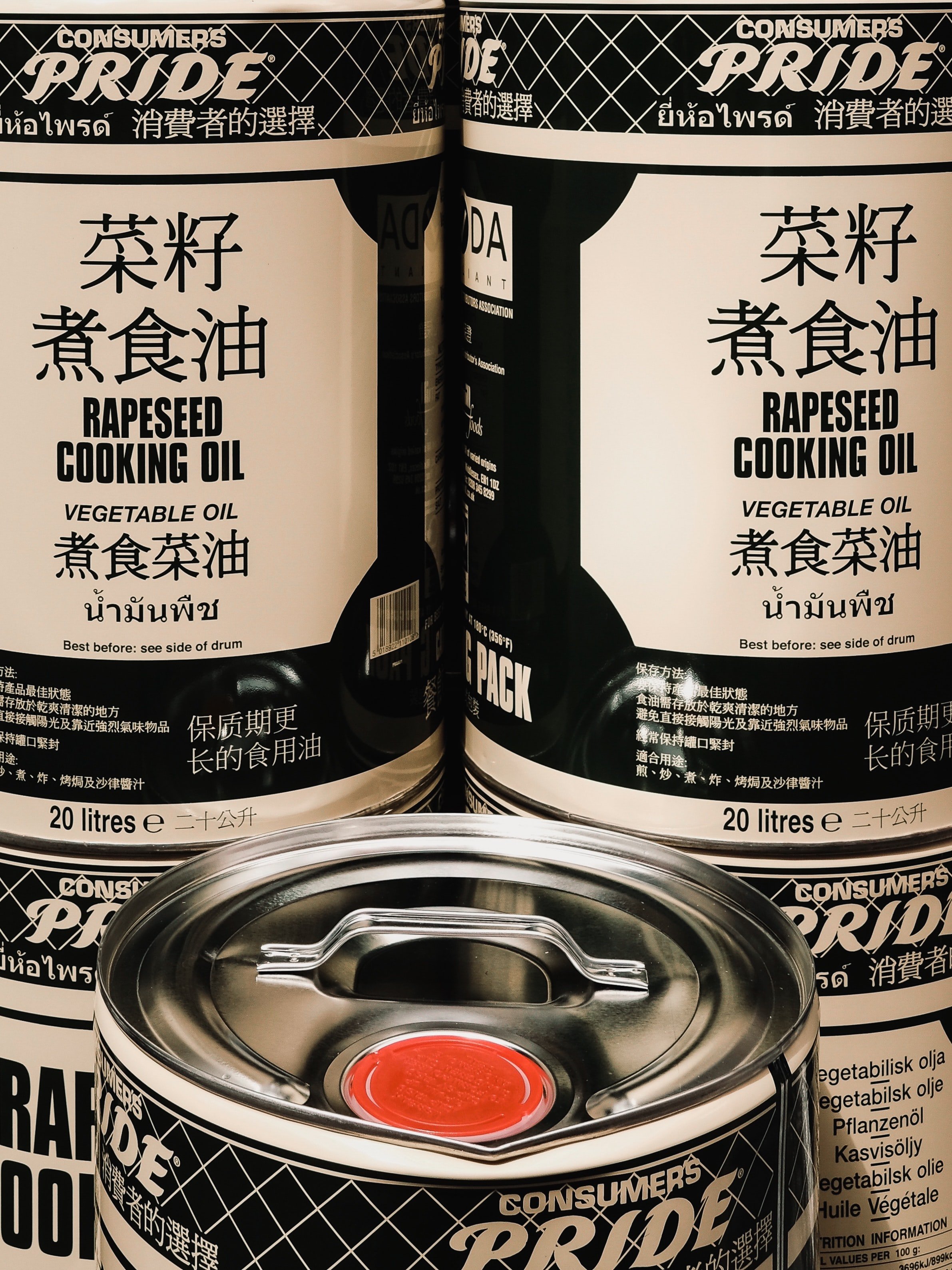Are Vegetable Oils Healthy?
Why Are Vegetable Oils So Bad For You?
Rapeseed Oil aka Canola Oil
Based on my reading and research, the number one thing you can do for your health is exercise regularly. A study was published two years ago comparing the health of two groups of people: smokers who also exercised and non-smokers who did not exercise. On average, the smokers who exercised were healthier than the non-smokers who did not exercise. That says a lot about the value and importance of regular exercise.
What Are Examples of Vegetable Oils?
Now, beyond working out consistently, the next best thing you can do for your health and longevity is to avoid processed seed oils - most commonly known as ‘vegetable oils.’ According to Dr. Cate Shanahan, nutritionist for the Los Angeles Lakers and author of Deep Nutrition, there are eight deadly oils that we should always avoid:
Cottonseed oil
Corn oil
Canola oil
Soy oil
Sunflower oil
Safflower oil
Grapeseed oil
Rice bran oil
Three of those begin with an ‘S’ and three begin with a ‘C’, which makes this list easy to remember.
How Are Industrial Seed Oils Made?
Most of those ‘vegetable oils’ are not even made from vegetables - most are made by heavily processing and refining the seeds of plants, such as sunflower seeds. The name ‘vegetable oil’ is really just a clever marketing ploy to make us think that those products are healthy. Plus, those are much cheaper to use for food companies and restaurants, compared to butter, olive oil, coconut oil, and other healthier fats.
To make oil from seeds, food companies must use tons of heat, pressure, and chemicals. During those processes, the vitamins, minerals, anti-oxidants, and other nutrients are stripped away, leaving us with rancid oil devoid of nutrition.
What Do Industrial Vegetable Oils Do To Your Body?
We then use those highly refined, unhealthy oils to cook with and to make many different kinds of processed foods, such as potato chips, salad dressings, granola bars, cookies, and more. In our bodies, those oils can do a lot of damage, including:
Raising inflammation – increasing joint pain, arthritis, and risk of cardiovascular disease
Damaging the thyroid gland – leading to a slower metabolism
Suppressing the immune system – leading to more infections and sickness
Can Olive Oil Be Used Instead of Vegetable Oil?
When you cook at home, use real butter - not margarine - coconut oil, or olive oil. Olive oil has a higher smoke point than most vegetable oils. Plus, most olive oils are much less processed and refined than seed oils such as canola oil. For the healthiest type of olive oil, buy organic, unrefined, expeller-pressed olive oil.
Another good option for cooking at home is animal fats, such as beef tallow, bacon grease, or lard.
Vegetable Oils at Restaurants and Grocery Stores
For salad dressings, choose products that use olive oil and/or vinegar.
When grocery shopping, avoid all products that contain any of the eight deadly oils listed above. Good luck, because they are in everything nowadays!
Avoid eating out. Almost 100% of restaurants - even many nicer places - use cheap, highly processed seed oils such as canola or sunflower oil.
Carbs Aren’t the Enemy - Seed Oils Are
For about the past 20 years, most of us have believed that sugar is the number one cause of weight gain, obesity, diabetes, and other issues. That’s why the keto diet and other versions of very low-carb diets have become so popular. However, many nutritionists, doctors, and other health professionals are beginning to think that highly refined seed oils are the real enemy to our health and well-being.
Sugar intake has actually decreased since 2000, yet pre-diabetes and diabetes continue to rise. Our intake of seed oils, however, has continued to increase since 2000. So perhaps we should fear seed oils, not carbs. In fact, I’ll go ahead and create the next trendy diet for weight loss and better health - the ‘No Seed Oil Diet.’
-Shane


